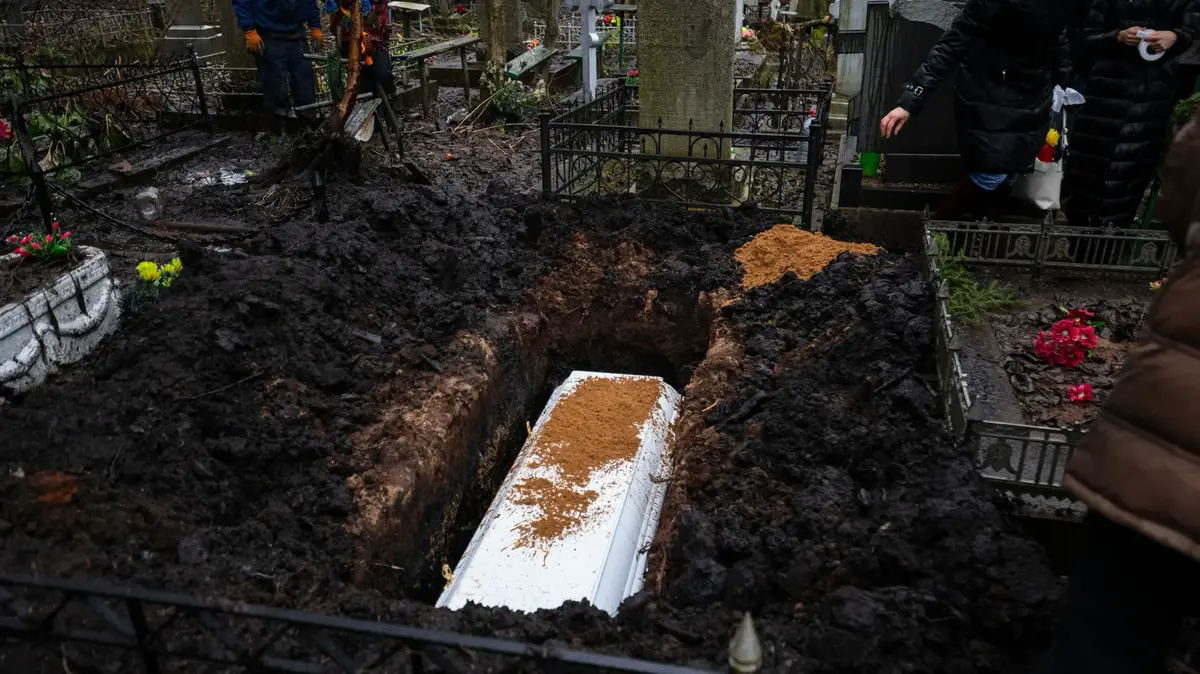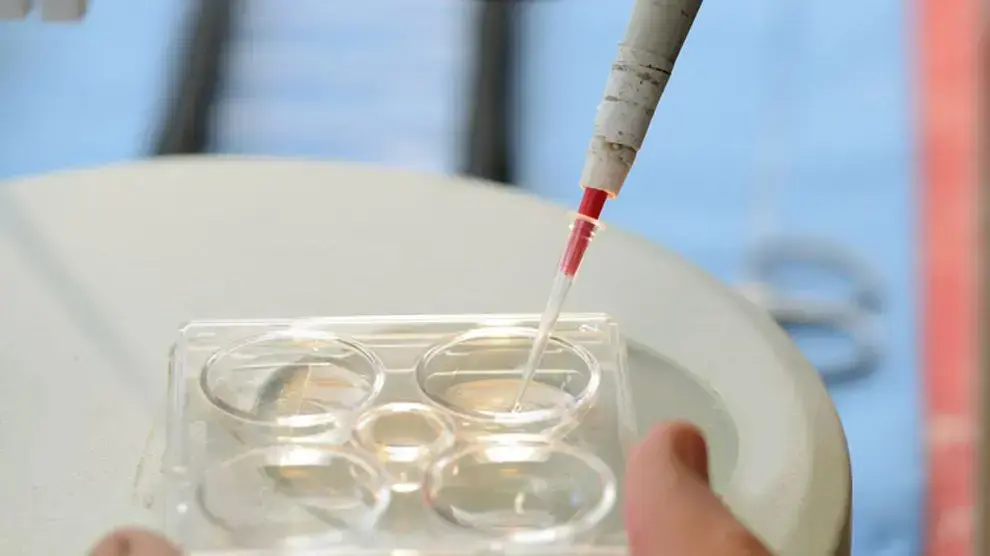By Jon SchuppeNBC
News
In the kitchen of her Rhode Island apartment, Irene Wilkowitz braced herself for what the detectives had come to tell her.
The last time the police had knocked on her door, she was 17 years old and was told that her sister's body had been found.
Eve, 20, had been kidnapped, raped and strangled after taking an overnight train home from Manhattan, where she was working as a secretary at a publishing house, on March 22, 1980. Her body was left in a yard near her apartment. in Bay Shore, New York, on the south shore of Long Island.
[This young woman was sexually assaulted and murdered 42 years ago in Las Vegas. A DNA test has solved the case]
That was 42 years ago.
Since then, Wilkowitz has gone to college, worked, married, raised two children, divorced and moved from Long Island, always fearing the killer might one day come for her.
Wondering if they would ever catch him.
She became Eve's latest advocate, emailing detectives for updates every few weeks and urging them to try a DNA investigative technique that has recently helped solve hundreds of cases sitting in a drawer around the world. country.
Detectives assured him that she was trying.
With the arrival of new news, he tried not to have high expectations.
She couldn't take any more disappointments.
She took a deep breath.
Irene Wilkowitz's sister, Eve, was murdered 42 years ago in Bay Shore, New York. Kayana Szymczak/NBC News
“We have identified the person responsible for the death of your sister, Eve,” said Suffolk County Police Detective Jeffrey Bottari.
Wilkowitz's legs began to shake.
He hugged his son Evan, 25, named in memory of Eve.
“I started crying because I never thought I would hear those words,” Wilkowitz recalled.
[The DNA recovered in a shell allows to clarify the murder of a woman 20 years later]
His name was Herbert Rice.
He died of cancer in 1991, with two children who had no idea what he had done.
In the extensive and exhaustive investigation of the murder, in which the police walked dozens of streets and interviewed hundreds of people, Rice had never aroused suspicion.
He had a brief history of arrests for non-violent crimes, which did not require him to provide a DNA sample that had been entered into criminal databases.
The search for relatives in the criminal database, known as a family DNA search, also failed.
It was the new technology, known as genetic genealogy, that finally gave the police the answer.
On video: A camera captures the kidnapping of a woman in front of witnesses in San Luis Potosí
March 30, 202200:50
“Without DNA, this would never have been solved,” explained Suffolk County Prosecutor Raymond Tierney.
On Wednesday, Suffolk County authorities will hold a news conference saying that Rice was the killer.
Wilkowitz will travel from Rhode Island to thank detectives and speak on Eve's behalf.
But knowing who killed her sister will not repair four decades of terror, anxiety and loss.
[A woman adopted as a baby discovers her biological father is on the FBI's most wanted list.]
"For 42 years, this was all I wanted: I just wanted it to be over," Wilkowitz said this week.
“My goal was to be a mother, and beyond that I didn't allow myself to have any more dreams because I was afraid that someone would come and kill me.
So I can't process that it's resolved now, and that it's still here,” she explained.
Irene Wilkowitz holds up a photograph of her late sister, Eve.
Kayana Szymczak/NBC News
Eve was Wilkowitz's only sister.
Her mother died of cancer before Eve's death, and her father passed away in 2010, leaving Irene as the last member of the family who could speak on Eve's behalf.
On anniversaries of her death, she gave interviews to the local media, a way to keep Long Island from forgetting her.
“She was not famous.
She was not a celebrity.
She was my sister, and she is important,” Wilkowitz recalled.
A DNA match
In 2018, Wilkowitz's son told him about a new investigative technique that California authorities had used to identify the serial rapist and murderer known as the Golden State Killer.
Police had entered the crime scene DNA into consumer DNA databases, including GEDmatch, FamilyTreeDNA and MyHeritage, and traced the family tree back to a former police officer.
[Two Latina co-workers had the same tattoo. The coincidence hid a greater secret]
The case was the first use of genetic genealogy to solve a violent crime.
It sparked a surge of interest in the method and spawned a mini-industry of private labs working with genetic genealogists to reexamine decades-old crimes.
But the tactic also raised concerns among privacy activists, who feared the government was misusing people's personal data, and some states were reluctant to allow its use.
In January 2019, Wilkowitz contacted the most famous of genetic genealogists, CeCe Moore, and asked for her help.
Moore told Wilkowitz that she couldn't get involved because New York didn't allow the technique yet.
Detectives worked the case for four decades without finding a suspect. Kayana Szymczak/NBC News
The state Department of Health required private labs to obtain a permit to do this type of work, a rigorous process that can take months or years, and no lab had been granted the permit.
(The Department of Health has since granted permits to two companies to perform genetic genealogy for the NYPD.)
[Two 9/11 Victims Identified 20 Years After Terrorist Attacks]
Wilkowitz pleaded with Suffolk County Police Lt. Kevin Beyrer, a homicide investigator who oversaw Eve's case, to find a way.
He was also frustrated that he couldn't prove genetic genealogy.
But in December 2019, Suffolk County authorities came up with a solution: They asked the New York Department of Health to allow them to send DNA from semen found on Eve's body to the FBI.
The FBI had assisted in the original 1980 investigation and was not restricted by New York law.
The state and the FBI agreed, and in July 2021, an FBI agent specializing in genetic genealogy told Suffolk County detectives that she had found a distant relative of the unknown suspect, along with a last name: Rice.
Working with that information, detectives tracked down Herbert Rice, who had been long dead.
Unable to obtain a DNA sample to confirm his theory, they located one of his sons.
After covertly failing to get a DNA sample from him, Bottari, the detective, knocked on the son's door and told him what they were trying to do.
[Suspect of Raping and Attempting to Murder Woman Arrested Inside New York Building]
The son said he had not been near his father and allowed the detective to take a cheek swab.
The DNA sample verified in late August that the son's father was the murderer.
Bottari told the son and his mother, who completed the story.
They present in court the alleged serial killer of vagrants in New York and DC
March 16, 202202:16
At the time of the murder, the son's mother indicated that she had kicked Rice out of her home, according to detectives.
Rice had moved in with his mother, who lived about four houses from the yard where Eve Wilkowitz's body was discovered on March 25, 1980.
In the case file, investigators saw that Rice's mother had been questioned by police, who had canvassed the neighborhood.
She told them that she hadn't noticed anything, according to Bottari.
Rice's son had done nothing wrong but told detectives he still wished he could apologize to Wilkowitz's family.
[A chilling question, 114 stab wounds and a satanic mark in the murder of a young Florida cheerleader]
Rice's son could not immediately be reached for comment.
The mother declined to comment.
Questions without answer
On December 6, Bottari and a homicide unit sergeant visited Irene Wilkowitz in Rhode Island to tell her what they had found.
Wilkowitz, who works as a nanny, shares an apartment with her son, because she is still afraid of living alone.
Knowing that the chances of a breakthrough were slim, she thought the detectives were probably coming to say that they had reached a final dead end.
Photos of Eve Wilkowitz and her family. Kayana Szymczak/NBC News
He introduced Evan and made small talk while Bottari used the FaceTime video phone application to connect with the FBI agent who had done the genealogy research.
[Two Bodies Found at Versace Mansion on Anniversary of Italian Designer's Murder]
"These are the most exciting visits we can do, to give a family some kind of answer," Bottari explained.
“Especially for her.
We had decades of detectives working on this,” she detailed.
Wilkowitz wept in her son's arms as detectives gave her Rice's name and date of birth.
They told him how they had found out.
He surprised her.
He thanked the detectives and, after about 30 minutes, they left.
Wilkowitz leaned against the kitchen island for a while, crying.
Still shaking, he called out to Beyrer and thanked him.
Wilkowitz said she was open to talking to Rice's son, who is considering it after Bottari tried to put them in touch.
“I just want to say thank you,” Wilkowitz said, “and how sorry I am for him and his family knowing that he is responsible for a crime like this and that they have to live with it.
It's horrible for them too," he said.
[This woman shot her husband to death in front of their children. A jury found her not guilty]
Before announcing that the case was solved, Suffolk County authorities wanted to make sure they had the right man.
So they got a search warrant to exhume Rice's body.
The results came in on March 23, nearly 42 years to the day Eve went missing.
Samples taken from the remains matched the suspect's DNA.
It was him.
"There is no way we would have gotten to where we are today if it wasn't for science and genetic genealogy that allowed us to dig in, find the family members and lead us to Mr. Rice," said Suffolk County Sheriff Rodney Harrison.
Beyrer praised Wilkowitz for keeping the focus on the hunt for the killer.
“She deserves the credit and I think she is the star of this case,” Beyrer explained.
[Police Arrest Suspect in Shooting Five Homeless Men in New York and Washington DC]
The case is closed.
But Wilkowitz continues to suffer from the trauma of losing her sister and not knowing who killed her for decades.
He still has questions that will never be answered.
“I can't ask you anything: why did you do it?
Why did he mess with an innocent and beautiful woman who was just walking to her house?
There are no real answers, there is no why,” Wilkowitz said.
She wants to find a way to continue to be the voice for her sister, and perhaps for the families of other victims whose cases remain unsolved.
Say there is always hope.
When he speaks at the press conference on Wednesday, he will hold up a photo of Eve and her parents.
And she will tell whoever listens that her sister was not just a story told and retold in the media.
"He was a real person," Wilkowitz said.
“She was outgoing, she had many friends, she liked horses, music, reading, writing and drawing.
And she liked being a big sister to me.
I want people to know about it,” she concluded.








